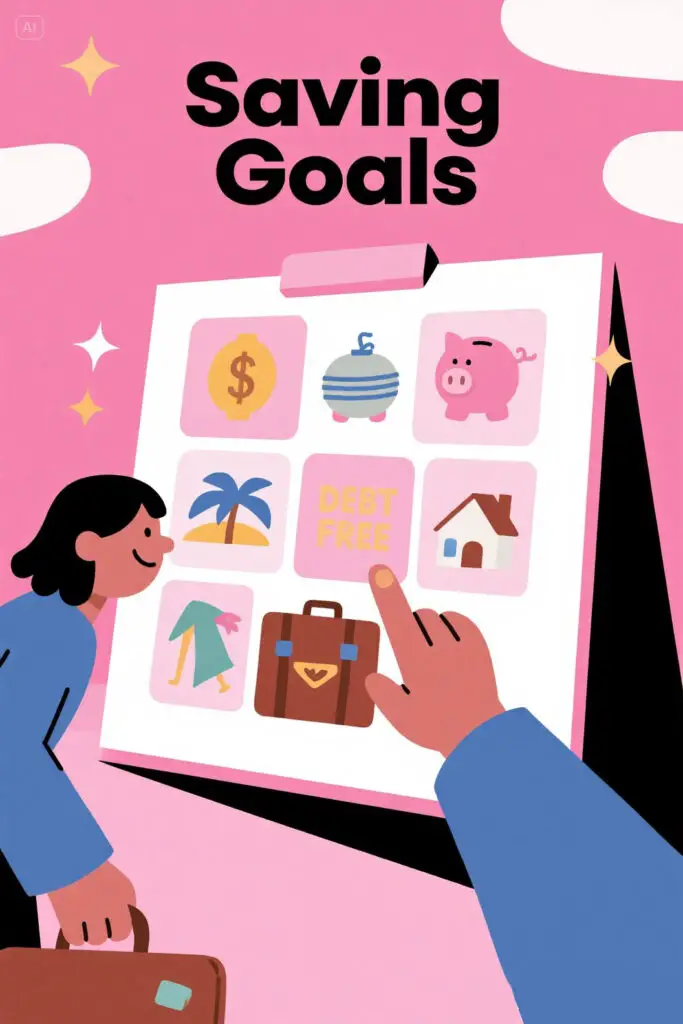When it comes to building financial freedom and security, budgeting can help you transform your financial life. A good budget gives you clarity and direction, reduces stress, and helps you use your money with a more mindful and thoughtful approach instead of wondering where it all went at the end of the month. Whether you’re planning a big future purchase, trying to build an emergency fund, or something as simple as saving money so it can serve you in the future, learning how to budget effectively can transform the way you manage your finances. This article will help you explore some of the most practical budgeting tips to help you save money, stress less, and create a plan that actually works for your life.
1. Start by Tracking Your Spending
Before you get to budgeting, it is important to track your current spending patterns and habits. Spend at least a month writing down every expense you spent your money on, no matter how small or big, including rent, utilities, medical expenses, transportation, subscriptions, coffee runs, or takeouts.
You may come to realize that you’re spending way more on those seemingly harmless ’small’ expenses than you thought. By allowing yourself to track the spending, you give yourself a clear picture of where your money is going, giving yourself the opportunity to take action and become more mindful and intentional of what you spend on.
2. Set Clear Financial Goals

Another helpful tip is to make the process feel a bit more personalized by associating it with a clear purpose or target. You can ask yourself questions like “What do I want my money to do for me?”, or “Do I have something important coming up that I’d rather use my money for later?”. Asking yourself these can help you reflect on what your future goals and targets are.
Whether it’s building an emergency fund, paying off credit card debt that feels overwhelming, or saving for a family trip, having a specific and realistic goal can help you become more motivated and consistent to achieve the goal.
3. Use the 50/30/20 Rule as a Guideline
For a simple yet effective budgeting framework, you can consider the 50/30/20 rule that is all about prioritizing your basic expenses over those extras. The catch of this budgeting method is simple, 50% of your paycheck is spent on basic expenses or anything that falls under ‘needs’ such as rent, groceries, utilities, or gas. 30% of your income is spent on those ‘wants’ such as dining out, subscriptions, shopping, or streaming services. Lastly, 20% of your income goes to savings or paying off debt, if there is any.
What makes this budgeting method a considerable option is that it makes your finances structured and organized, without being overly strict or cutting back on fun and entertainment.
4. Prioritize an Emergency Fund
Life has its way of throwing unpredictable surprises when you least expect them, and not all of them are pleasant. Whether it’s a sudden car repair, job loss, or unforeseen medical expenses, it’s essential to have an emergency fund in place so your entire budget isn’t thrown off track when life throws a curveball your way.
Start small if you need to, aim for $500–$1,000 as a starter goal, and then gradually work your way up to cover three to six months’ worth of essential expenses. Knowing you have that safety net in place not only keeps you financially secure but also reduces stress and gives you peace of mind.
5. Pay Yourself First
One of the smartest budgeting habits is to pay yourself first which means treating your savings like a non-negotiable bill, just like rent or electricity. Instead of waiting until the end of the month to see what’s left, set aside money for savings as soon as you receive your paycheck.
Even if it’s a small amount, consistently putting money away builds discipline and helps you reach your goals faster. Over time, these contributions add up, and you’ll be surprised at how much you can save when you prioritize your future self first.
6. Cut Back on Non-Essentials Mindfully
Saving money doesn’t mean you have to stop doing everything you enjoy or find comfort in, it just means becoming more thoughtful about where your money goes. Look at your non-essential spending categories, like dining out, streaming subscriptions, or impulse shopping and instead of cutting them out completely, ask yourself which ones bring you the most joy and which ones you barely notice.
Keep the meaningful ones and try to cut back on the rest. This way, you’re saving money without feeling deprived, making it easier to stick to your budget in the long run.
7. Use Cash for Discretionary Spending

In today’s world of credit cards and online banking, it’s easy to swipe a card or tap your phone without realizing how much you’ve spent. One effective way to manage discretionary spending like entertainment, eating out, or personal treats is to use cash instead of cards, so you can actually feel the money leaving your hands.
Decide how much you want to spend in a week, withdraw that amount, and use only that cash for your expenses. This simple habit makes you more aware of your choices and helps you stay within the spending limits and avoid impulse buying and overspending.
8. Review and Cancel Unused Subscriptions
Many people waste money every month on subscriptions they barely use or forgot they have subscribed to. These small and recurring charges like extra streaming platforms, unused gym memberships, or apps can quietly eat away your budget.
Take a moment to review your bank statements, list all your subscriptions, and ask yourself which ones you actually use regularly and cancel the rest. Even if it’s just $10 or $20 a month, cutting back on these hidden expenses adds up to big savings over the course of a year.
9. Meal Plan and Shop Smart
Food is one of the biggest expenses in most households, but it’s also one of the easiest to overspend on. Without planning, you might find yourself eating out often or making frequent grocery runs that add up quickly.
A simple way to handle this is to plan ahead meals for the week by creating a list of meals, shopping with a clear grocery list, and making the most of what you already have at home. Buying in bulk, using coupons, and avoiding shopping when you’re hungry can also save a surprising amount. Not only does meal planning save money, but it also reduces food waste and makes mealtimes less stressful.
10. Avoid Lifestyle Creep
As your income grows, it’s tempting to upgrade your lifestyle by buying nicer clothes, going for bigger purchases, or enjoying more frequent outings. This is called “lifestyle creep,” and it’s one of the fastest ways to lose sight of your financial goals.
Instead of spending more every time you earn more, focus on keeping your expenses steady and using that extra income to boost savings, investments, or debt repayment. By resisting lifestyle creep, you’ll make real progress toward financial freedom without feeling like you’re stuck living paycheck to paycheck.
11. Review Your Budget Regularly
A budget isn’t something you create once and forget, it needs regular check-ins and adjustments. Whether you’ve paid off a loan, moved to a new place, or your income has shifted, reviewing your budget monthly or quarterly helps you stay on top of these changes and make adjustments where needed.
Think of it as a financial health check-up where you want to make sure your budget is still serving your goals and supporting your lifestyle in the best way possible.
12. Use Apps or Spreadsheets to Stay Organized
Budgeting doesn’t have to feel like a complicated or overwhelming task, in fact, with all the tools available today, staying organized can be easier than ever before. There are apps that automatically track your spending, sort it into categories, and even send you reminders when you’re close to going over budget.
On the other hand, if you prefer something simpler and more hands-on, a basic spreadsheet can work just as well because it allows you to see your numbers laid out clearly and in a way that makes sense to you. What matters most isn’t which tool you use, but whether you stick with it consistently.
When all of your income, expenses, and goals are in one place, it not only gives you clarity about where your money is going but also makes it so much easier to track your progress and stay accountable to the financial future you’re trying to build.
Conclusion
Budgeting is one of the most powerful tools for saving money and building financial security and stability in the long run. It isn’t about saying no to things you enjoy and find comfort in, it’s about saying yes to a secure and stable financial future. By tracking your expenses, setting clear goals, and sticking to a budget that suits you, your income, and lifestyle the best, you can take control of your money instead of letting it control you. The sooner you start budgeting, the sooner you’ll feel the freedom and confidence that comes with financial stability.
